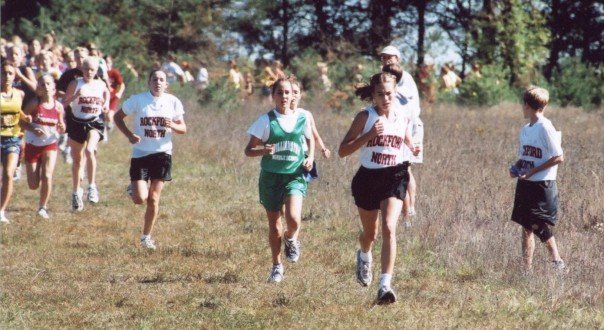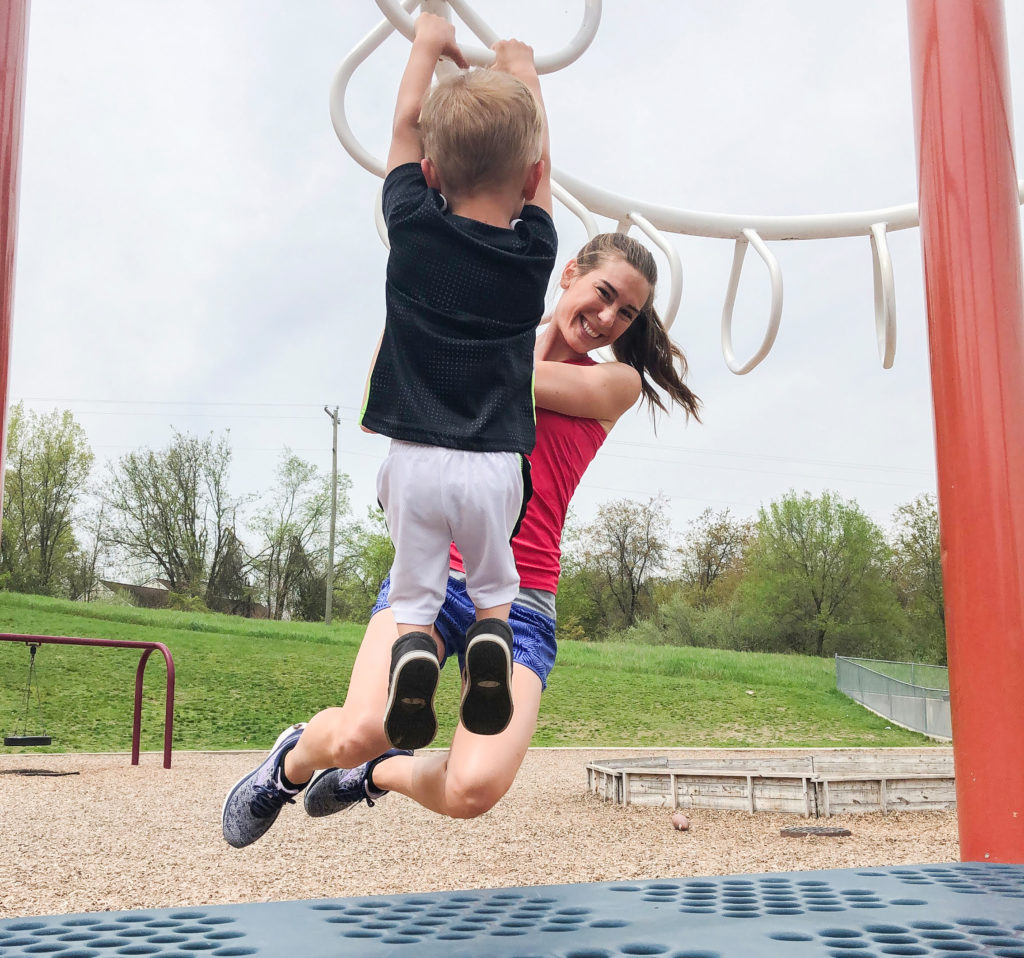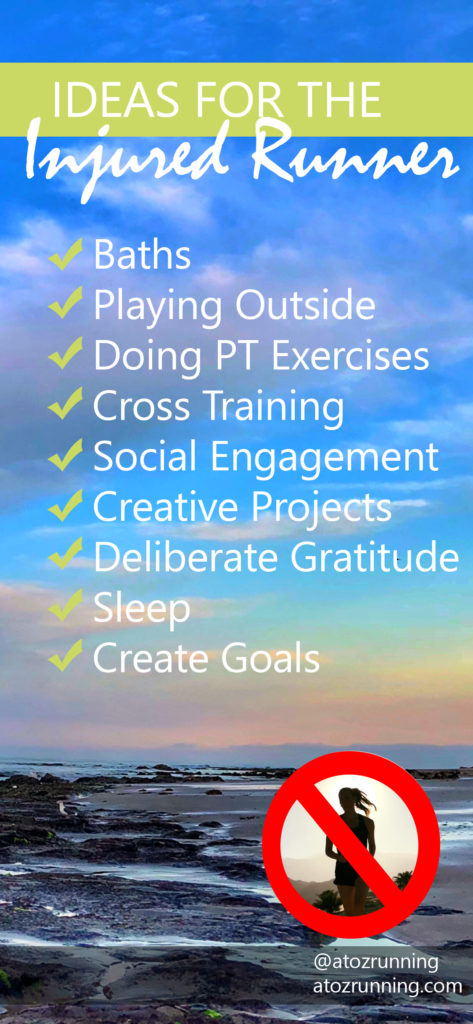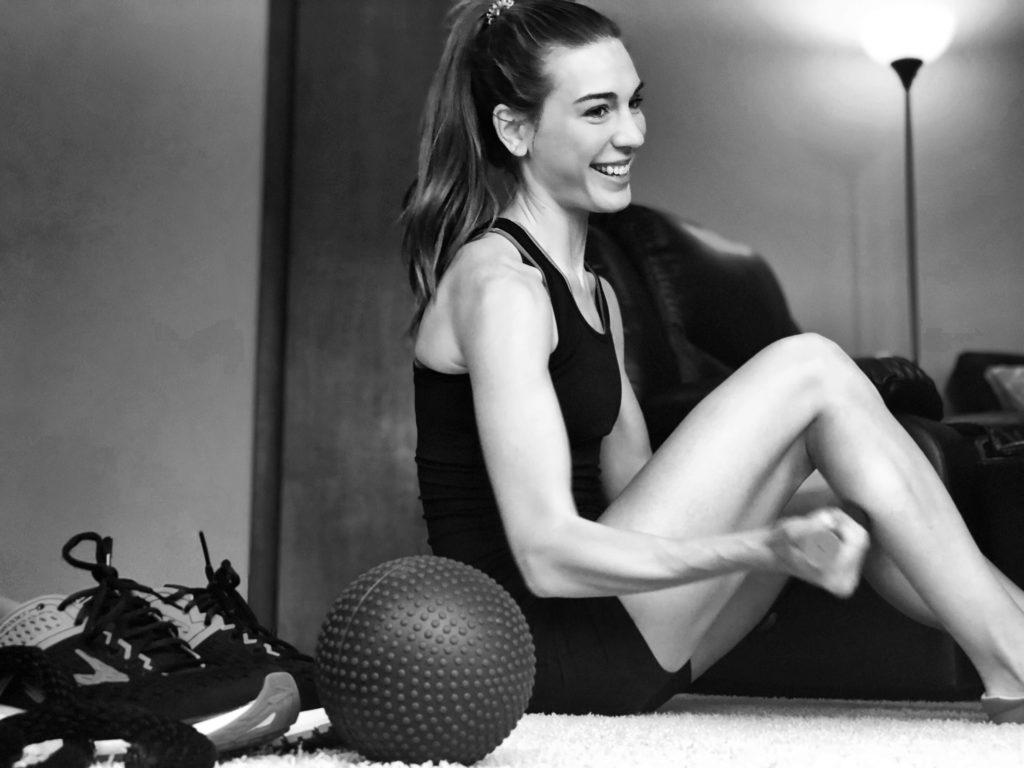Are you surprised to find an article on “How to Not Run” on a running website? It’s an important conversation, especially with the topic of running injury. I have been running and coping through running since junior high school. I would get out of junior high dances because I “needed to run.” Yes, that was my excuse! It worked very well. Who would judge someone for being disciplined, right?

As I have previously shared, I rely heavily on the benefits of running for my mental, emotional, and physical well being. Not being able to makes me a little crazy (ok, Zach says a LOT).
I have faced with many injuries in my time in the sport. I often keep “testing it out” to see if there is pain. Just a couple steps here and there. Bad idea. Patience would be better.
Please comment below with your ideas to help your fellow running addicted.
If you take anything away from the article, this is it:
Consider each day: Will running benefit you or harm you? Do you have a running injury? If your compulsion is strong despite your cognitive reasoning, dive deep. Search for the greater issue at play.
Personally, I have been driven by fear and anxiety. Admitting these motives is the first step to overcoming. A beautiful side effect: running with freedom (an article for another time).
Not-Running Ideas
Baths help ease my anxiety, and I am able to get a good stretch after. Add in some epsom salts to your bath for an even greater benefit.

Playing Outside
Working in the yard, playing with my kids, going for a walk, any way to get that vitamin D helps with my anxiety.
Doing Exercises
Doing the work (the things that DON’T hurt me) helps me feel like I am working toward my running goals. Don’t just make it up, though. Talk to a physical therapist with expertise in running. (Our advice? Try Adam at Endurance Rehabilitation.)

Cross Training
Depending on the injury, cross training is a very effective way to help with running withdrawal. I had to take some solid days off of any cross training. This was when “Crazy Andi” made her most prominent appearance. Getting in a good sweat really helps.
Social Engagement
Cheering at races (if you need some convincing, read Why Spectate a Road Race?), making plans with friends, writing positive remarks on others’ posts, and calling or texting a friend pull the semi- (or fully) reclusive injured runner out of a funk.
Creative Projects
Painting, home projects, cooking, drawing, jewelry making, writing, brainstorming, photography, photo editing, blogging, rearranging furniture, music, or learning a new art form can distract and fulfill some of the stir crazy. (I could’ve kept going on this one, but you get the point.)
Deliberate Gratitude
Entering a time of reflection to focus on blessings. For me, it’s a time of prayer and a proper ordering of my faith and priorities and self.
Getting a Good Night’s Sleep
If possible. Sleep helps most things. If you normally would get up early for a run, sleep in. Don’t feel guilty, feel refreshed. A lot of recovery happens while we sleep.

Foam Rolling
Roll. Roll. Stretch. Roll. Repeat! (For most injuries, mobilizing speeds recovery, but consult your doctor or PT before doing anything crazy.)
Taking Baths
Baths help ease my anxiety, and I am able to get a good stretch after. Add in some epsom salts to your bath for an even greater benefit.
Create Goals
Focusing on what is to come and creating goals and vision is important, even if these goals are not running related.
A Positive Focus
You may have thought of every single thing on this list. The take away is perhaps a nice list as a reference, but more importantly, encouragement to choose positive reflections and actions. Refocus and renewal can help us during our times of injury or scheduled breaks. We can create goals, like those I mention in Goals are Fragile. Make Objectives to Last.
Not running for the runner is tough. Please know you are not alone! Diving into driving factors can help us refocus our energy and renew or purposes. What works for you when you want to hop back in too early?
Related: Becoming a Stronger Animal


